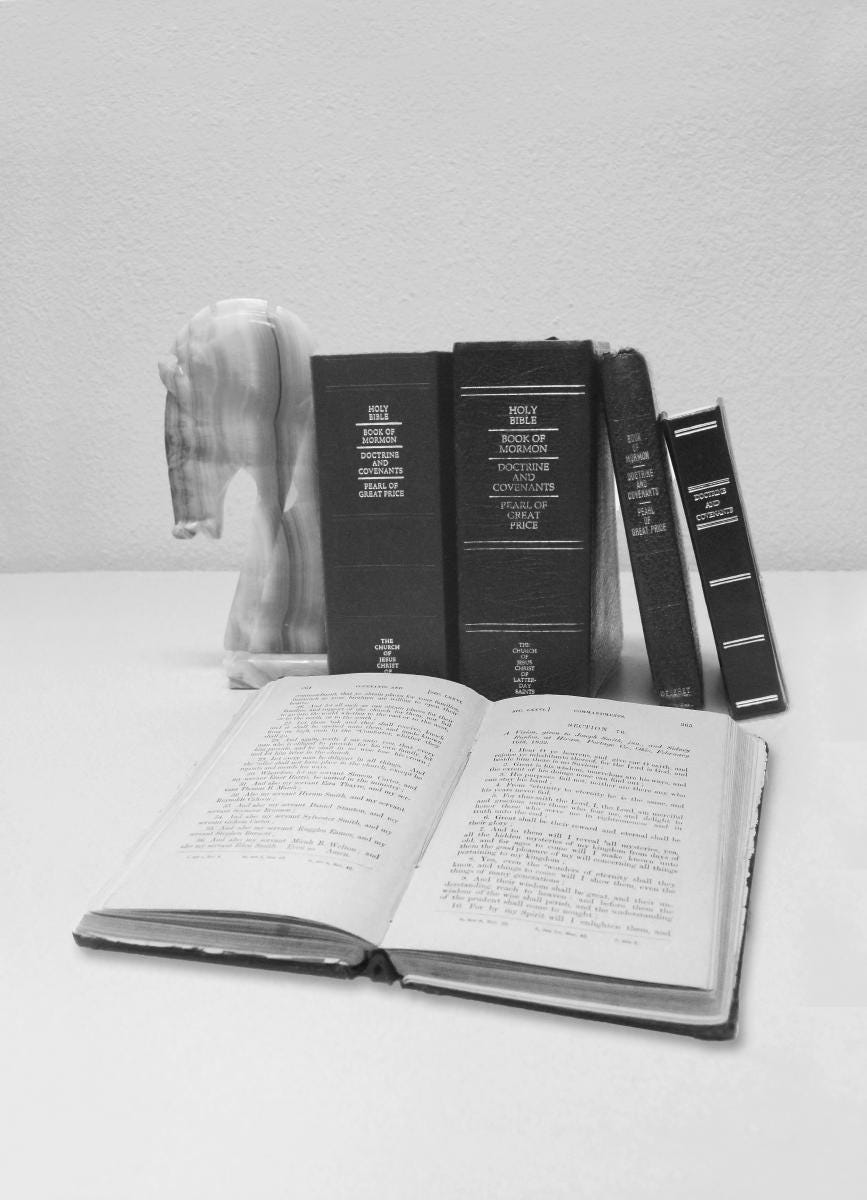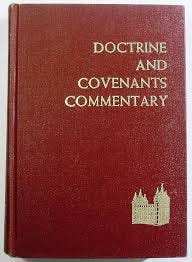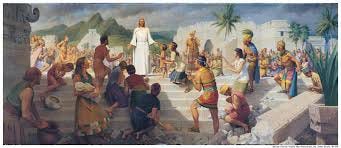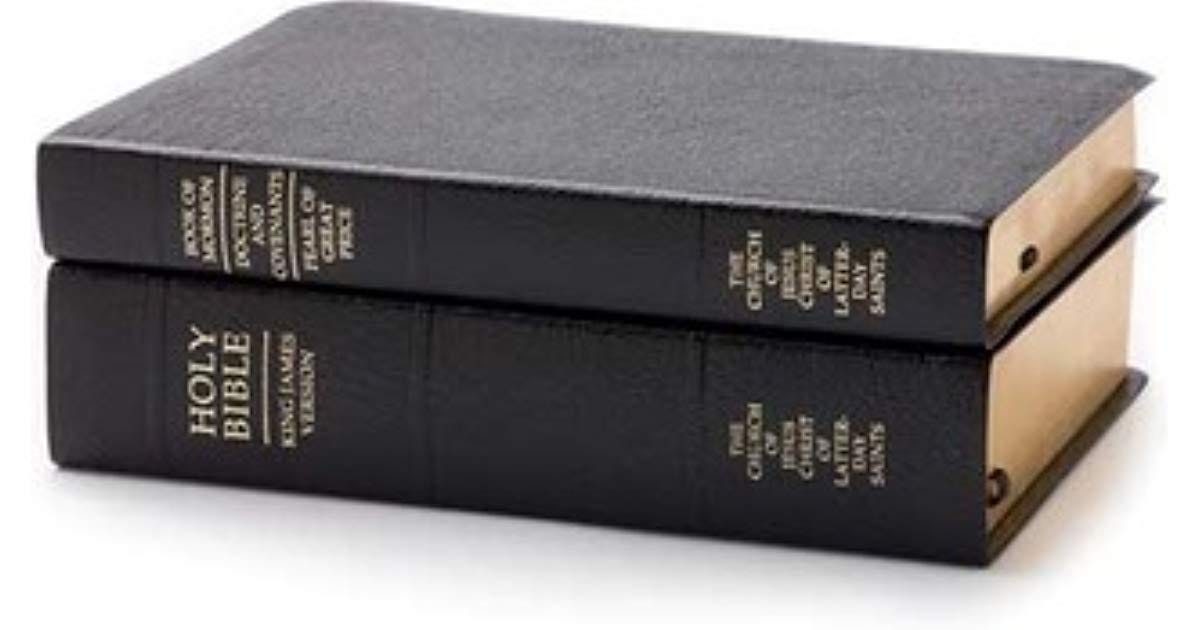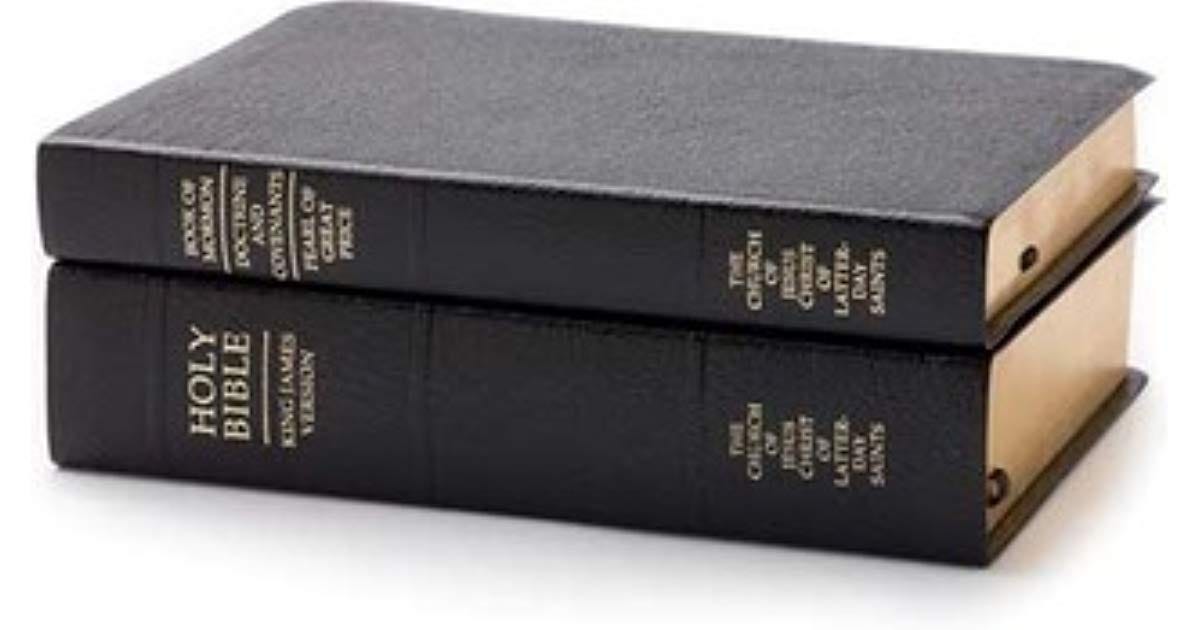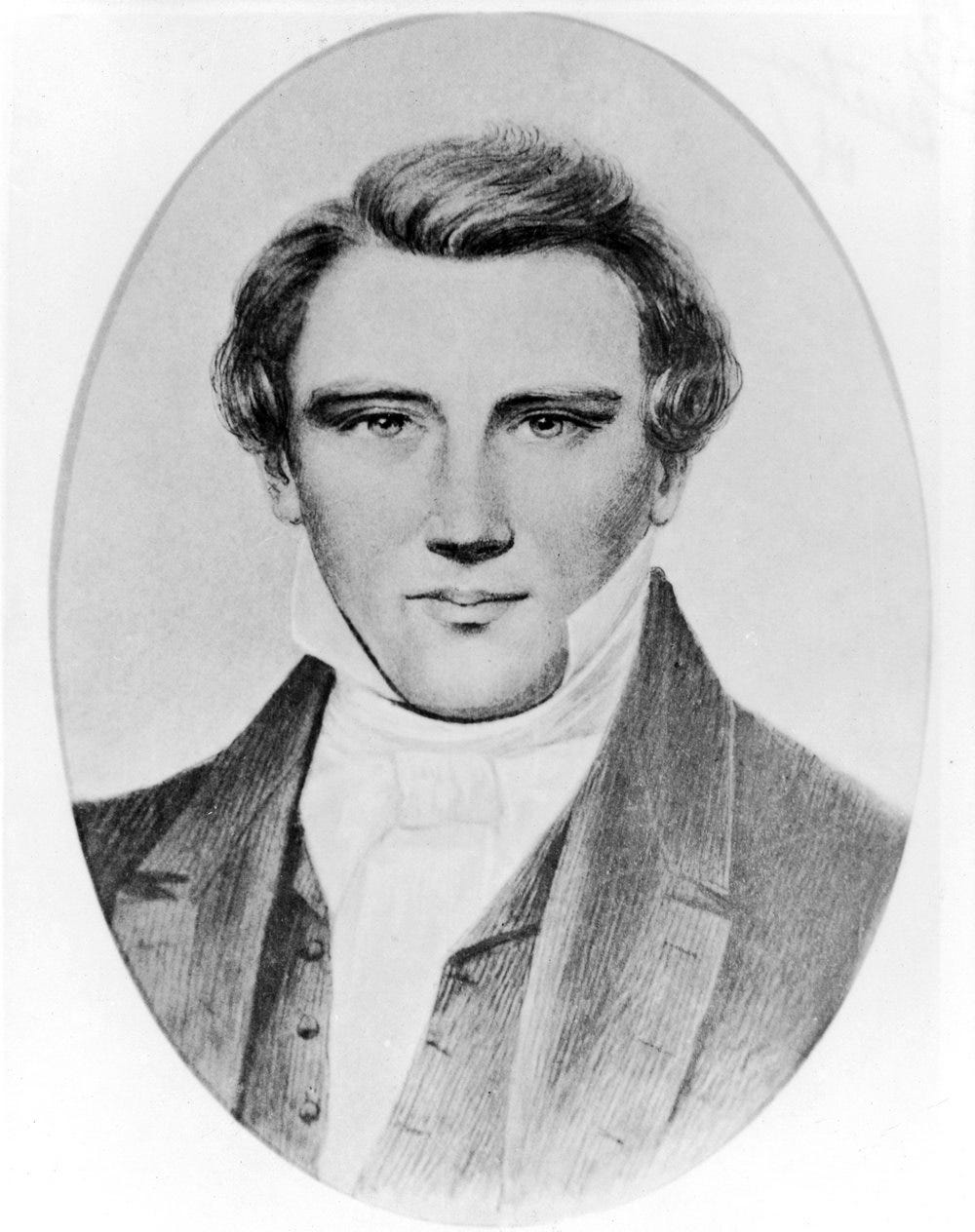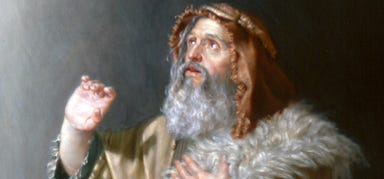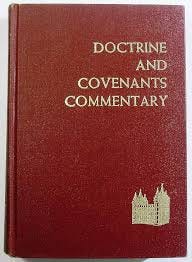Continue in Patience until Ye Are Perfected
Reflections on Doctrine and Covenants Section 67
In the previous post I outlined the historical background for Doctrine and Covenants 67. In this post we will examine and appreciate the revelation itself, a piece at a time:
Behold and hearken, O ye elders of my church, who have assembled yourselves together, whose prayers I have heard, and whose hearts I know, and whose desires have come up before me.
Behold and lo, mine eyes are upon you, and the heavens and the earth are in mine hands, and the riches of eternity are mine to give. (D&C 67:1-2)
The Lord hears our prayers and watches over us. He knows our hearts. He knows our righteous desires. He sees us. He is omniscient and omnipotent, and He desires to bless us with the riches of eternity. The introduction to this section is comforting and encouraging. We often need to know and be reassured that God hears our prayers and knows the righteous desires of our hearts. It is reassuring to know that Heavenly Father, Almighty God, holds the heavens and the earth in His hands, and that the riches of eternity are His to give.
In these introductory verses there are echoes of the Psalms of David:
The eyes of the Lord are upon the righteous, and his ears are open unto their cry. (Psalm 34:15)
He shall not be afraid of evil tidings: his heart is fixed, trusting in the Lord.
His heart is established, he shall not be afraid, until he see his desire upon his enemies. (Psalm 112:7-8)
There are also echoes of the Epistle to the Hebrews:
And, Thou, Lord, in the beginning hast laid the foundation of the earth; and the heavens are the works of thine hands: (Heb. 1:10)
It is important to remember that the language in these verses is not merely metaphorical. Joseph Smith had seen and conversed with God the Father and His Son Jesus Christ, two separate, distinct, and glorious corporeal Beings, Celestial Beings with ears to hear, eyes to see, hearts to understand, and hands to hold and bestow gifts.
Smith and Sjodahl observe:
1. An Assurance of the Divine Presence
Behold and hearken] Our Lord assured the Elders assembled at this important Conference that He had heard their prayers; that He knew their hearts, and that His eyes were upon them (v. 2). He was in their midst and demanded their attention: “Behold and hearken!” Attention to the Word of God is of the utmost importance. There can be no faith without it. Without intelligent attention we find no charm in the singing of birds, no delight in the exquisite form and sweet fragrance of flowers, no inspiration in the grandeur of nature, and no appreciation of the gifts God bestows upon us, and consequently, no faith on, no love of, the Giver. God demands our attention, as a father or a teacher demands the attention of the children. Why should mortals pay attention to His Word? Because He has “the riches of eternity” to give, not to sell. (p. 404)
I appreciate this tribute to and acknowledgment of the Giver, our Father in Heaven, and our Divine Teacher. Each of the things that Smith and Sjodahl mentioned as examples worthy of grateful attention - singing birds, fragrant flowers, the grandeur of nature - are among the abundant gifts that God has bestowed upon us, His children. God’s Divine power to give far exceeds our meager mortal capacities to receive. With the Heavens and the Earth in His hands, with the infinite riches of eternity at His disposal, and with Celestial generosity, He watches over us and delights to bless us with the greatest of all blessings. (see D&C 41:1) He is merciful and gracious unto those who fear Him, and delights to honor those who serve Him in righteousness and in truth unto the end. (see D&C 76:5)
These things remind me of one of the Lord’s most oft repeated instructions, namely, to ask of Him:
Ask, and it shall be given unto you; seek, and ye shall find; knock, and it shall be opened unto you.
For every one that asketh, receiveth; and he that seeketh, findeth; and to him that knocketh, it shall be opened.
Or what man is there of you, who, if his son ask bread, will give him a stone?
Or if he ask a fish, will he give him a serpent?
If ye then, being evil, know how to give good gifts unto your children, how much more shall your Father who is in heaven give good things to them that ask him? (3 Nephi 14:7-11)
But what does the Lord want us to ask for and to seek? At the beginning of D&C 67 the Lord reminds us that the riches of eternity are His to give. But we must seek them and ask for them. What are the riches of eternity? The phrase “riches of eternity” evokes another of Jesus’ most frequent teachings:
Lay not up for yourselves treasures upon earth, where moth and rust doth corrupt, and where thieves break through and steal:
But lay up for yourselves treasures in heaven, where neither moth nor rust doth corrupt, and where thieves do not break through nor steal:
For where your treasure is, there will your heart be also. (Matt. 6:19-21)
Treasures in Heaven is a good synonym for the riches of eternity, but where else does the Lord teach us about the riches of eternity? There are at least four different instances in modern revelation in which the Lord employs the phrase “the riches of eternity” to describe His Heavenly treasures:
“And if ye seek the riches which it is the will of the Father to give unto you, ye shall be the richest of all people, for ye shall have the riches of eternity” (Doctrine and Covenants 38:39).
“Mine eyes are upon you, and the heavens and the earth are in mine hands, and the riches of eternity are mine to give” (Doctrine and Covenants 67:2).
“Now, I, the Lord, am not well pleased with the inhabitants of Zion, for there are idlers among them;… they also seek not earnestly the riches of eternity, but their eyes are full of greediness” (Doctrine and Covenants 68:31).
“The kingdom is yours and the blessings thereof are yours, and the riches of eternity are yours” (Doctrine and Covenants 78:18).
Recall that this section contains a revelation that was given in response to questions about recording and publishing the revelations. The riches of eternity, therefore, must include the revelations themselves. In a later revelation we learn that during a special conference the Lord revealed that the revelations, specifically those contained in what is now the Doctrine and Covenants, are “worth to the Church the riches of the whole Earth.” Joseph Smith called the revelations “the foundation of the Church in these last days, and a benefit to the world, showing that the keys of the mysteries of the kingdom of our Savior are again entrusted to man.” Thus, to earnestly seek the riches of eternity must include the diligent study, appreciation, and treasuring up of the Word of God as contained in the Holy Scriptures:
Seek not for riches but for wisdom, and behold, the mysteries of God shall be unfolded unto you, and then shall you be made rich. Behold, he that hath eternal life is rich. (D&C 6:7)
Seek not for riches but for wisdom; and, behold, the mysteries of God shall be unfolded unto you, and then shall you be made rich. Behold, he that hath eternal life is rich. (D&C 11:7)
Treasures in heaven and the riches of eternity might also be called the riches of eternal life:
How oft have I called upon you by the mouth of my servants, and by the ministering of angels, and by mine own voice, and by the voice of thunderings, and by the voice of lightnings, and by the voice of tempests, and by the voice of earthquakes, and great hailstorms, and by the voice of famines and pestilences of every kind, and by the great sound of a trump, and by the voice of judgment, and by the voice of mercy all the day long, and by the voice of glory and honor and the riches of eternal life, and would have saved you with an everlasting salvation, but ye would not! (D&C 43:25)
The revelation in D&C 67, replete with the riches of eternity, continues:
Ye endeavored to believe that ye should receive the blessing which was offered unto you; but behold, verily I say unto you there were fears in your hearts, and verily this is the reason that ye did not receive. (D&C 67:3)
Faith in Jesus Christ is required to obtain the blessings that Heavenly Father desires to bestow upon us.
This is Smith’s and Sjodahl’s commentary on this verse:
Why Blessings Are Withheld.
There were fears in your hearts] The assembled Elders, or some of them, failed to receive a blessing which they had expected. What that blessing was is not stated. It might have been a special manifestation concerning the Book of Commandments (v. 4); or, some miraculous manifestation after the laying on of hands by the Prophet (v. 14). But whatever it was, some had failed to receive what they expected, and the reason is here stated: they lacked faith, and were consequently dominated by fear. (p. 405)
The revelation in D&C 67 continues:
And now I, the Lord, give unto you a testimony of the truth of these commandments which are lying before you.
Your eyes have been upon my servant Joseph Smith, Jun., and his language you have known, and his imperfections you have known; and you have sought in your hearts knowledge that you might express beyond his language; this you also know.
Now, seek ye out of the Book of Commandments, even the least that is among them, and appoint him that is the most wise among you;
Or, if there be any among you that shall make one like unto it, then ye are justified in saying that ye do not know that they are true;
But if ye cannot make one like unto it, ye are under condemnation if ye do not bear record that they are true.
For ye know that there is no unrighteousness in them, and that which is righteous cometh down from above, from the Father of lights. (D&C 67:4-9)
The diligent student of the scriptures will notice in these verses an echo of the Book of James:
Every good gift and every perfect gift is from above, and cometh down from the Father of lights, with whom is no variableness, neither shadow of turning. (James 1:17)
These verses also contain the Lord’s challenge to His Elders, a challenge that, as mentioned previously, William E. McLellin so foolishly accepted. Joseph Smith knew that he wasn’t perfect, and his associates also knew that he wasn’t perfect. He was a man like any other. But the riches of eternity are in the revelations that he received from God. The Prophet himself put it best:
When did I ever teach anything wrong from this stand? When was I ever confounded? I want to triumph in Israel before I depart hence and am no more seen. I never told you I was perfect; but there is no error in the revelations which I have taught. Must I, then, be thrown away as a thing of naught? (History of the Church, 6:366; from a discourse given by Joseph Smith on May 12, 1844, in Nauvoo, Illinois; reported by Thomas Bullock.)
and,
Although I do wrong, I do not the wrongs that I am charged with doing: the wrong that I do is through the frailty of human nature, like other men. No man lives without fault. Do you think that even Jesus, if He were here, would be without fault in your eyes? His enemies said all manner of evil against Him—they all watched for iniquity in Him. (History of the Church, 5:140; from a discourse given by Joseph Smith on Aug. 31, 1842, in Nauvoo, Illinois; reported by Eliza R. Snow.)
and,
I … went over to the store [in Nauvoo, Illinois], where a number of brethren and sisters were assembled, who had arrived this morning from the neighborhood of New York. … I told them I was but a man, and they must not expect me to be perfect; if they expected perfection from me, I should expect it from them; but if they would bear with my infirmities and the infirmities of the brethren, I would likewise bear with their infirmities. (History of the Church, 5:181; paragraph divisions altered; from a Joseph Smith journal entry, Oct. 29, 1842, Nauvoo, Illinois.)
Joseph Smith’s friends knew that he was not perfect, and some of them thought that his imperfections were manifested in the language of the revelations. They were soon disappointed, and the Lord gave unto them a testimony of the truth of the commandments, both through the Holy Ghost and by manifesting the folly of any mortal attempt to duplicate or improve upon the revelations. There was no need to spruce up, embellish, or attempt to improve upon the language of the revelations, because even the least of them came from the Lord.
I like this challenge. Sometimes when I hear people criticize Mormonism or the Prophet Joseph Smith, I think to myself, “When you, o critic, produce a revelation from the Lord that is even one paragraph or one page long, and when you, o critic, accomplish something that is even a small fraction as great as what the Prophet Joseph Smith accomplished, then perhaps I will listen to you. Until then, keep in mind, o critic, that over the course of his very brief life, the Prophet Joseph Smith produced thousands of pages of revelations, organized a Church that now numbers millions of members, pioneered the wilderness, built cities and temples, and lived great and died great in the eyes of God and his people. He laid down his life for the cause of Jesus Christ before he was even 40 years old. What have you done, o critic, that holds a candle to any of this?”
I know and bear record that the revelations that the Lord gave to the Prophet Joseph Smith are true. I know that there is no unrighteousness in them and that they came down from above, from the Father of lights.
Before the Book of Commandments was printed, several Church leaders signed a written testimony that the revelations in the book are true. This is their testimony:
The Testimony of the witnesses to the Book of the Lords commandments which he gave to his church through Joseph Smith Jr who was appointed by the vos [voice] of the Church for this purpose
We the undersigners feel willing to bear testimony to all the world of mankind to every creature upon all the face of all the Earth upon the Islands of the Sea that god hath born record to our souls through the Holy Ghost shed forth upon us that these commandments are given by inspiration of God & are profitable for all men & are verily true we give this testimony unto the world the Lord being my helper & it is through the grace of God the father & his Son Jesus Christ that we are permitted to have this privelege of bearing this testimony unto the world in the which we rejoice exceedingly by praying the Lord always that the children of men may be profited thereby Amen
Sidney Rigdon / Joshua Fairchild / Orson Hyde / Peter Dustin / Wm.. E. Mc.lel[l]in / Newel Knight / Luke Johnson / Levi Hancock <; never to be eraised> / Lyman Johnson / Thomas B Marsh / Reynolds Cahoon / John Corrill / Parley [P.] Pratt / Harv[e]y Whitlock / Lyman Wight / John Murdock / Calvin Beebe / Zebedee Coltrin
Smith and Sjodahl write:
A Test of Divine Inspiration
A testimony of the truth] To those who have failed to receive the manifestation expected (v. 3) and, therefore, were tempted to doubt, the Lord offered the test stated in vv. 5-8)
-8. The Book of Commandments was before the Conference, in manuscript. Any Church member might examine it and select the Revelation which might be considered the least (v. 6). Then the wisest among them might be appointed to compose one like it; if he succeeded, the Saints would be justified in concluding that the book was of no higher than human origin (v. 7); if he failed, they would be under obligation to accept it as divinely inspired, and to bear testimony to the truth of it (v. 8).
9. No unrighteousness in them] This is an additional test. None of the Revelations contains anything that has a tendency to produce unrighteousness or condone it. On the contrary, by obedience to them righteousness is promoted among the children of men. As Truth, by the appearance of the Book of Mormon, sprang out of the Earth, so Righteousness, in these Revelations, looked down from heaven (Psalm 85:11); for “that which is righteous cometh down from above” (v. 9).
Wm. E. McLellin accepted the offer and, in a spirit of presumption, undertook to imitate the Revelations of the Lord. His effort to produce a Revelation was witnessed with great interest by the Elders, and when they became aware of his complete failure, all doubt concerning the Revelations of God vanished, and they signified their willingness to testify of their truth. Accordingly, a document containing their testimony was drawn up and given to the world (Hist. of the Church, Vol. I., p. 226; see also the Introduction to this Volume, pp. 15-17). (pp. 405-406)
I really wonder what McLellin’s supposed revelation was… apparently no one preserved a copy of it, so it must have been quite a poor imitation. To his credit, the humiliated McLellin signed the collective testimony of the truth of the revelations.
The revelation in D&C 67 continues and concludes:
And again, verily I say unto you that it is your privilege, and a promise I give unto you that have been ordained unto this ministry, that inasmuch as you strip yourselves from jealousies and fears, and humble yourselves before me, for ye are not sufficiently humble, the veil shall be rent and you shall see me and know that I am—not with the carnal neither natural mind, but with the spiritual.
For no man has seen God at any time in the flesh, except quickened by the Spirit of God.
Neither can any natural man abide the presence of God, neither after the carnal mind.
Ye are not able to abide the presence of God now, neither the ministering of angels; wherefore, continue in patience until ye are perfected.
Let not your minds turn back; and when ye are worthy, in mine own due time, ye shall see and know that which was conferred upon you by the hands of my servant Joseph Smith, Jun. Amen. (D&C 67:10-14)
These verses may indicate the nature of the blessing that the Elders had failed to receive because of their lack of faith and humility. These verses may also teach us something more about the meaning of the riches of eternity. It is life eternal, or eternal riches, to know the only true God and His Son Jesus Christ (see John 17:3), and in this section the Lord promised His Elders the sacred privilege to see Him as His servant Joseph Smith had already seen Him.
The Lord explained the requirements for enjoying this blessing and privilege. In order for the veil to be rent and to see the Lord - not with the carnal or natural mind, but with the spiritual - and in order to know Him better, we must strip ourselves from jealousies and fears and humble ourselves before Him.
After centuries of contention and confusion in the Christian world about the true nature of God, the Lord revealed truths to the Prophet Joseph Smith that demystify the scriptures. For example, many people have been confused about verses of scripture such as the following:
No man hath seen God at any time; the only begotten Son, which is in the bosom of the Father, he hath declared him. (John 1:18)
or
And he said, Thou canst not see my face: for there shall no man see me, and live. (Exodus 33:20)
Because of errors in translation and false religious dogmas, too many have supposed, contrary to all common sense and the testimonies of the prophets, that no man can ever see God, or that God is somehow invisible. Why then did Moses and all the prophets labor to prepare their people to see the face of God? Why then did the Lord Himself declare that the pure in heart shall see God? Consider the clarity that Joseph Smith’s inspired translation of the Bible brings to such verses:
And no man hath seen God at any time, except he hath borne record of the Son; for except it is through him no man can be saved. (JST John 1:19)
and
And he said unto Moses, Thou canst not see my face at this time, lest mine anger be kindled against thee also, and I destroy thee, and thy people; for there shall no man among them see me at this time, and live, for they are exceeding sinful. And no sinful man hath at any time, neither shall there be any sinful man at any time, that shall see my face and live. (JST Exodus 33:20)
Moses saw the Lord face to face because the Lord prepared him for the blessing:
But now mine own eyes have beheld God; but not my natural, but my spiritual eyes, for my natural eyes could not have beheld; for I should have withered and died in his presence; but his glory was upon me; and I beheld his face, for I was transfigured before him. (Moses 1:11)
The ordinances of God and the power of His Priesthood which holds the key of the mysteries of the kingdom and the key of the knowledge of God are necessary to prepare us to see the face of God. Thus in this section the Lord reveals that no man has seen Him at any time in the flesh, except those who have been quickened by the Spirit of God. The natural man and the carnal mind cannot abide the presence of God. But when we are prepared, with spiritual eyes opened and the glory of God upon us, we will be transfigured before Him and behold His face.
The the Lord instructed His Elders to continue in patience until perfected, because at the time they were not able to abide His presence. But if they would obey His counsel, not turn back, and become worthy, the Lord promised that, in His own due time, they would receive that great blessing.
The commentary on these last verses in the LDS Come Follow Me manual is worth pondering:
“Continue in patience.”
How do jealousy, fear, and pride keep us from growing closer to the Lord? How do we overcome the “natural man” or “carnal mind” so that we can “see [Him] and know that [He is]”? (verse 10; see also Mosiah 3:19). What do you find in these verses that inspires you to “continue in patience until ye are perfected”? (verse 13).
This is Smith’s and Sjodahl’s final commentary on these verses and this section:
Divine Promises and Admonitions.
You shall see me and know that I AM] This is a promise which no man could have given without the hope of fulfilling it. But it was fulfilled. On the evening of the first day of the dedication of the Kirtland Temple, there was a gathering of Elders, numbering over four hundred, and many of them testified that they had visions. They heard a sound of a mighty wind. “Almost every man in the house,” one report says, “arose, and hundreds of them were speaking in tongues, prophesying and declaring visions, almost with one voice” (Jour. of Dis., Vol. XI., p. 10). Frederick G. Williams testified that he saw the Savior on that occasion.
Not with the carnal mind, etc.] Visions of our Lord are not perceived with the outward eye, or reflected in the natural mind, but with the spiritual eye. There is a spirit within, whose range of vision is limited by the capacity of physical organs, so that it can neither see nor hear that which lies beyond the boundaries of what we call “matter,” but when the veil is lifted, the spirit can perceive the spiritual world.
-
-13. But such a temporal removal of the veil is only partial. Natural man cannot see God, or abide in His presence, nor in the presence of angels, unless he be “quickened” by the Spirit of God. Comp. Dan. 10:7-10; 1. Cor. 13:12; Rev. 1:17. (pp. 406-407)
Smith’s and Sjodahl’s “General Notes” on this section are also instructive.
In Karl Ricks Anderson’s book The Savior in Kirtland: Personal Accounts of Divine Manifestations there are numerous testimonies of the early Saints who, like the Prophet Joseph Smith, became eye witnesses of our Savior Jesus Christ. I commend it to your attention. The riches of eternity include Divine manifestations.






